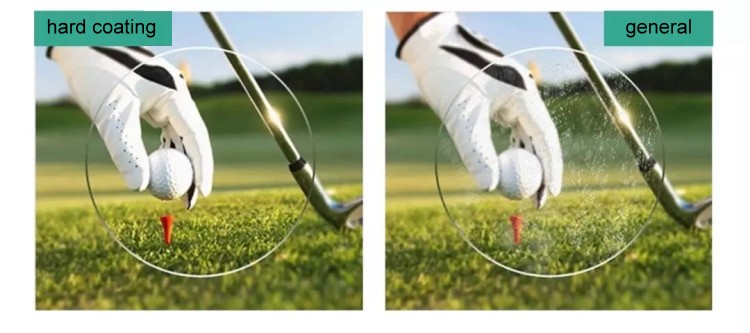
Why is the lens surface hardened?
Compared with glass lenses, resin lenses are light, safe and comfortable. The only drawback is that the resin lenses rub against dust or gravel during use, resulting in abrasion and scratches. These scratches are bound to affect vision if they are in the center of the lens.

Therefore, in order to improve the anti- abrasion ability of the resin lens, it is necessary to add a layer of anti-abrasion film on the surface. This is the hardening technology of the lens, which is also called hard coating or anti- abrasion.
Evolution of Hard Coating Technology
The first generation of hard-coating technology began in the early 1970s, when quartz materials were plated on the surface of resin lenses under vacuum to form a very hard anti-abrasion film, but due to its coefficient of thermal expansion is not matched with the material of the base material, and it is easy to remove the film and crack the film layer, but instead forms a mottle and a flower on the surface of the lens, and the effect is not satisfactory.
The second generation of hard coating technology is applied after the 1980s, by the soaking process, the surface of the resin sheet is coated with a material with high hardness and not brittle. At this time, the anti-reflection lens began to appear and gained the approval of consumers, and the mismatch between the hard film and the anti-reflection film made the lens abrasion still serious.
The third generation of hard coating technology was developed in the 1990s, mainly to solve the problem of anti resistance after resin film is coated with anti-reflection film, and the hardened material evolved into polymer organic matrix material.
The protagonist of the fourth-generation hard-coating technology is silicon atom, which is a hard liquid containing both an organic matrix and inorganic ultra-fine particles including silicon, so that the hard film can be improved while having toughness. The hardening process is still a soaking method, and the hard coating is about 3 to 5 μm.
As a result, the problem that the resin lens is not anti-abrasion is greatly improved.